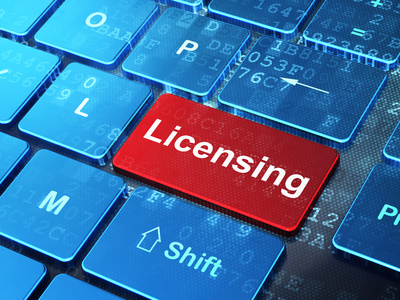The International Trade Blog International Sales & Marketing
International Marketers Dilemma: To License or Not to License!
On: October 15, 2006 | By:  Prema Nakra |
7 min. read
Prema Nakra |
7 min. read
 For businesses wanting to crack a foreign market, determining where to start and what approach is best can be confusing and daunting. There are many ways in which your company can enter the foreign market: direct or indirect exporting, licensing, joint ventures, strategic alliances, and foreign direct investment (FDI).
For businesses wanting to crack a foreign market, determining where to start and what approach is best can be confusing and daunting. There are many ways in which your company can enter the foreign market: direct or indirect exporting, licensing, joint ventures, strategic alliances, and foreign direct investment (FDI).
In this article I will discuss how to use licensing as a mode of entry into an international market from marketer’s perspective. No legal or intellectual property related issues or recommendations will be provided.
Licensing Is Big Business
Welcome to the globalized market where licensing as a strategic tool for global expansion is not confined to any particular country or region. It is truly global. As an increasing number of industries experience the benefits of globalization, large and small firms are contemplating licensing as an option for reaching new markets or to reduce manufacturing costs. There is little doubt that licensing is big business today.
According to a study by the International Licensing Industry Merchandisers' Association (LIMA), property and trademark owners received royalties worth $5.8 billion for their rights. Such rights were to use trademarks, characters, logos and artwork to sell products in the United States in 2000, an increase of 4.4% over the year before. Meanwhile, worldwide retail sales of licensed merchandise totaled more than $175 billion in 2000 according to trade sources, with U.S. sales estimated at $97 billion.
Honeywell International is a $30 billion diversified technology and manufacturing leader serving customers worldwide with aerospace products and services; control technologies for buildings, homes and industry; automotive products; turbochargers; and specialty materials. Based in Morris Township, N.J., Honeywell’s shares are traded on the New York, London, Chicago and Pacific Stock Exchanges. It is one of the 30 stocks that make up the Dow Jones Industrial Average and is also a component of the Standard & Poor’s 500 Index.
The company serves thousands of customers in about 100 countries worldwide, representing numerous cultures. The company employs approximately 100,000 people in 95 countries and operates hundreds of facilities throughout the world. What many don't know, however, is that Honeywell is very active in licensing its intellectual properties; it has granted more than 1,500 licenses that provides over $100 million in annual revenue.
In the rest of this article I will explain the meaning and power of licensing as an entry mode and identify the challenges you might face as you implement this option. Finally, I will discuss recommendations for the effective use of licensing in the international environment.
Deciphering Licensing
Licensing has had an international component since the advent of the 20th Century, but certainly over the last 20 years licensing has focused on the international market. Since the mid- to late 1980s, the importance of licensing intellectual property has changed significantly. Extraction of value from a corporation’s intellectual assets (IA) has become big business.
The most notable example is IBM, where revenues from IA grew from the low teens to over $1.3 billion annually in a little over 10 years. IBM is not the only one. It has been widely reported that for a number of years Intel Corporation earned more money from its aggressive licensing deals than from its day-to-day operations.
From a business perspective, licensing is a contractual arrangement in which a licensor allows a licensee to use patents, trade marks, trade secrets, technology or other intangible assets in return for royalty payments. Licensing may also be described as a strategy for technology transfer, and an approach to internationalization that requires less time or depth of involvement in foreign markets compared to exports, joint ventures and foreign direct investment. From a tactical perspective licensing is often referred to as the tool that heightens the value of intellectual property rights.
A licensing agreement is a partnership between an intellectual property rights owner (licensor) and another who is authorized to use such rights (licensee) in exchange for an agreed payment (fee or royalty). The scope of licensing agreements varies significantly. Licensing may be granted for production processes, for use of trade name, or for the distribution of imported products.
A licensing agreement may include some or all of the following:
- Patent, Trademark Licensing and Franchising Agreement.
- Copyright License Agreement.
- Manufacturing know-how or process that may or may not be subject to a patent.
- Technical advice and assistance including supply of components, materials or plants essential for the manufacturing process.
- Marketing assistance, advice, the use of trade mark, brand name and/or logo.
The payment structure (the royalty rate, time frame and incentives for maximizing profits), geographical area in which the licensee may operate, exclusivity of licensee, rights to improvements to the technology, etc., are among the many factors discussed, negotiated and agreed upon as part of licensing agreement.
Power of Licensing
As a global market entry and expansion strategy, licensing has a great appeal. The most common reasons for a licensor to enter into a licensing agreement are to benefit from better manufacturing capacity, wider distribution outlets, greater local knowledge, and the management expertise of the licensee. Therefore, the licensor may, through the licensee, expand into markets more effectively and with greater ease
In the business model of pharmaceutical and biotechnology companies, licensing plays a significant part. In 2004, 26.1% of the top 15 pharmaceutical companies' sales were derived from in-licensed drugs. Large pharmaceutical companies have developed impressive and effective licensing organizations. Additionally, more and more biotechnology and specialty pharmaceutical companies are realizing the value of licensing and are choosing licensing to leverage their market positions.
Is Licensing the Right Entry Strategy for Your Firm?
The basic advantage of licensing is the ease with which you can enter a foreign country market. You are, in essence, using the licensee’s management, capital equipment and knowledge of the market to exploit the markets served by the licensee. Listed below are some of the situations where it would be appropriate to take a serious look at licensing as an entry mode:
- If your firm has developed a better product or manufacturing process, selling or licensing that knowledge, if done effectively, would translate into additional income. If your firm does not have the knowledge, time or resources to be actively engaged in international marketing in a country or a region, licensing may be a viable option.
- If your firm must concentrate on the core competencies in product development, outsourcing production and marketing to someone else in the targeted region via licensing would make sense.
- Individual inventors, lacking the necessary capital and/or commercial know-how, also benefit from entering into licensing agreements with companies capable of helping them commercialize their ideas.
- If your product demand exceeds what you can supply in view of your production capacity, you may decide to license the use of your technology or brand name to another company with sufficient manufacturing capacity.
- If you represent a multinational corporation with well recognized brand names and innovative technologies and if your objective is to capture the global market without wasting any valuable time, licensing is a good option.
- Licensing is a good alternative to foreign manufacturing and marketing in an environment where there is widespread inflation, skill-labor shortage, increased governmental regulation and restrictions, and tough international competition.
- If the political or economic environment in a target country appears to be unstable or volatile and your corporate culture is risk averse, licensing begins to make good strategic sense. In some countries the governments prefer to grant licenses only to domestic companies. In such events, your firm may team up with a capable licensee even though the market size is large enough to warrant setting up your own manufacturing facilities.
Licensing Challenges
Licensing is not as easy as it may appear. To attract some one to be your licensee you must have a distinctive process, product, brand or technology, as well as a well-recognized and well respected brand name or trade mark.
Not all Licensing Deals are Successful
Not all licensing agreements result in a positive experience for companies. Case in point: According to a survey conducted by Pharma Ventures in year 2001, approximately 50% of drug companies responding to an international survey believed that one of every two pharmaceutical licensing deals they enter into will fail. The high failure rate was attributed primarily to poor implementation, culture clashes between companies, and the lack of commercial success. The question always remains, could this happen to you?
Theft of Your intellectual Property is a Real Threat
Licensing technology is especially risky where the legal protection of intellectual property rights is relatively weak. Once you give someone your valuable information about your brand or technology, be aware that you have increased the risk of that information being spread to unauthorized parties or used in ways you would not otherwise allow.
Case in point: In the mid 1990s, Mitsubishi envisioned capturing a large share of the fast growing Asian car market. It decided to license of its technologies to help Hyundai build a better car on its behalf. On signing this agreement, Hyundai instantly became a potential rival to Mitsubishi in Asia. As Hyundai became self sufficient in most technological areas due to the licensing agreement, it moved ahead of Mitsubishi in the key and growing markets of China and Europe.
Counterfeiting Is Alive and Well
When you license the use of your technology, know-how, brand name and trademark to an independent party in a foreign country, the licensee may waste no time duplicating the effort to create counterfeit products that look very similar to yours. This phenomenon is very much alive in countries where intellectual property rights are not fully protected.
Licensed toys represent 26% of total industry dollar sales, according to The NPD Group. The industry is also subject to multiple infringement and counterfeiting related issues. The manufacturers (licensors) in the toy industry, as in any other industry, are responsible for guarding against intellectual property infringement and counterfeiting. For more details on counterfeiting please refer to my article on this topic.
Recommendations
To find a reliable business and to develop a licensing relationship, a thorough analysis of the country market environment is an absolute must. Foreign licensing requires a thorough knowledge of the economic situation in the target country where a license is to be granted. While some countries may have high rates of economic growth, others may be stagnant, which could affect overall levels of profitability.
In the international context, a formal licensing agreement is possible only if the intellectual property right you wish to license is also protected in the other country or countries of interest to you. If your intellectual property is not protected in such other country or countries, then you would not be able to license it. You would have no legal right to impose any restriction on its use by anyone else.
Entering into a licensing agreement is like entering into a continuing relationship where the licensor and licensee must work together to achieve their business and financial goals. The licensee stands to benefit from the superior product, process and/or technology enabling it to improve efficiency, cut costs or produce better-quality products.
Final Words
To sum up, if import restrictions or other country specific environmental factors forbid other modes of entry or if a country is sensitive to foreign ownership, licensing is a viable strategy for international expansion. Building and maintaining relationships with overseas licensees require you to change both strategies and tactics for building the brand. In other words, global expansion through licensing is a serious business and requires fine-tuning the critical components of your business. To achieve a "win-win" situation, the interest of both the licensor and licensee must be appreciated and protected.

About the Author: Prema Nakra
Prema Nakra, Ph.D. is an educator, economist and a marketing consultant. Dr. Nakra is a professor of marketingand International Business and MBA Program Director at the School of Management, Marist College. Her academic qualifications include a Ph.D. in economics, MA in economics, and MBA in marketing management.
Prior to joining Marist, Dr. Nakra worked for international organizations including the International Cooperative Alliance for South East Asia, Ellington Duval Inc, Worldwide Marketing Group, and the New School for Social Research. An active member of American Marketing Association, American Economic Association, and Balanced Scorecard Technology Council, she is frequently invited to presents papers and at international business conferences.

